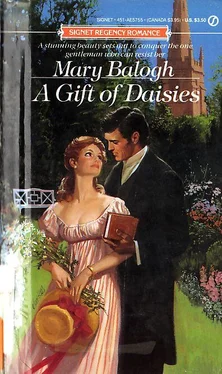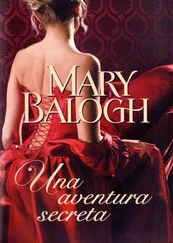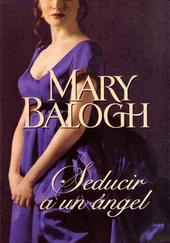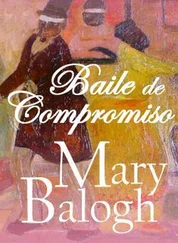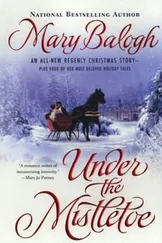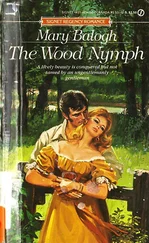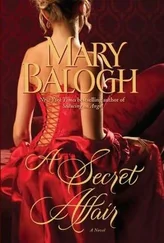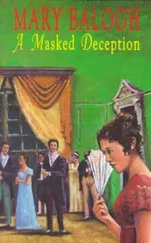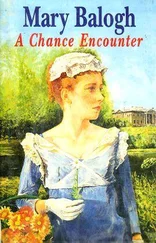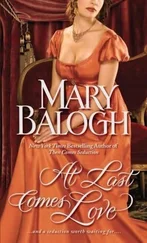And finally, despite himself, he had begun to learn, to read and study for pleasure, to realize that perhaps the life of the mind was not as deadly dull as he had always assumed. And then had come his meeting with Jonathan Forbes, a fellow student who had been much influenced by the Methodist preachers. Drinking, partying, womanizing had all been gradually and unconsciously neglected as he spent more and more time discussing and arguing with his new friend and a few other acquaintances.
And the end of it all was that he had found himself a changed man. Not a Methodist. He believed strongly in the established church, did not believe that fragmenting it could ever achieve any good. But he had found that his religion had come alive for him and that his desire to be a clergyman was no longer a matter of necessity, but one of deep personal commitment.
Since then David had no longer been bitter about his lot. Indeed he blessed the fate that had made it necessary for him to think beyond the next day's entertainment. No longer was he ambitious for the most glamorous job the church could offer. He wanted only to serve as a man of God was meant to serve, working mainly with the poorest of the poor. He was no longer interested in the acquisition of money or position or possessions. It was not that he gave them up in a spirit of painful self-denial. He just lost interest in them.
And he was happy. He had spent two years of utter contentment at Oxford. If there was one fact to disturb that mood, it was only his impatience to have a living of his own so that he could begin his life of service. And now he had that living. He had been extremely fortunate to find himself qualified at almost the same moment that the vicar in Algie's parish was retiring. He had not expected something so satisfactory quite so soon. He had accepted the offer with alacrity.
And now he was to have a holiday, back in his old life for a few weeks before leaving for his new parish with Algie. And it felt strange to be back. His old self seemed like someone from another life, and yet places and even many people looked familiar. He renewed several old acquaintances and watched with some ruefulness and some amusement as old friends became more aloof after a few days, puzzled at the change in him. He was no longer the riotous David Gower they had known.
Whereas several years before, he would have been eagerly seeking out some female or females of easy virtue with whom to amuse himself, now he looked around him at a different class of young woman. Not too high, of course. No lady of highest ton would be flattered by the attentions of a penniless clergyman. But nevertheless he thought it possible that he might meet someone of somewhat lower status who would be willing to share his life. It would not be an easy lot for any lady. He had almost nothing to offer. He had no money to start with, and he had no intention of even trying to build a comfortable fortune.
But David wanted to marry. Partly he felt it an obligation to do so. His father had always been loudly critical of the parson at home, arguing that as the man was a bachelor, he had no right to offer his advice on marriage and family life. No one should criticize the life of another until he had experienced that life or its kind for himself, the late Viscount Cardwell had said many times. And David agreed with him.
But getting married was not just a duty. It suited his inclination to wed. He had given up promiscuity two years before, entirely from personal choice, but his desire for women had not died. He needed a woman, someone with whom he could regularly and lawfully satisfy the cravings that had troubled him for all of two years. Now that he was to have a living of his own, he could finally think of taking a wife. He had very little to offer her, it was true, but he was to have his own church, his own vicarage, his own parish.
His thoughts turned frequently to Miss Barnes. It seemed that, as he had suspected from the start, she was the daughter of a gentleman of small means. She was fortunate to have Lady Rachel as a friend. It seemed doubtful that she would have had a Season otherwise, Algie had told him. She perhaps would not react with contempt to his attentions.
She was, moreover, just the sort of lady he had thought to choose for a wife. She was quiet and unassuming, sensible. She seemed neither framed nor inclined toward a life of frivolity. She was not pretty, but on the other hand, she was not unattractive either. She was a little taller than her friend, and thinner. He felt no stirring of physical desire for her, it was true. But that would develop with time. He liked her, or at least he was growing to like her.
A week's acquaintance was very little, he supposed, when one was thinking in terms of a lifetime commitment to a very intimate relationship. He had visited her a few times when Algie called at Grosvenor Square. He had taken her driving and walking. He had shared a box with her and Algie and the Earl of Edgeley's family at the theater one evening. And he had danced with her twice at the Simpson ball and sat with her, Algie, and Lady Rachel at supper. He hoped to continue the acquaintance without giving too soon perhaps the impression that he was about to offer for her. He wanted a little time yet before making any irrevocable decision.
He wished only that his acquaintance with Miss Barnes did not bring him into such frequent contact with her friend. He always felt a little uncomfortable with Lady Rachel Palmer. She was a girl one could hardly prevent oneself from watching. She was always so full of life and gaiety. And she was very lovely to look at, of course. But she was an enigma to him. He could never be quite satisfied that he understood her.
She was ambitious, he had thought. She had her heart set on making a brilliant marriage and was working single-mindedly toward achieving that aim. She had set her sights on the Marquess of Stanford and appeared to be succeeding. The marquess had visited at Grosvenor Square the afternoon after the ball and had come to pay his respects at the Edgeley box when they were at the theater. David had felt somewhat sorry for Algie, who clearly loved the girl but was standing aside in his usual unassuming way, watching her try to make a more brilliant match for herself.
Yet all the evidence did not fit such an interpretation of Lady Rachel's character. She always greeted Algie with such exuberant joy that David could not escape the conclusion that she loved him too. And her face was always alight with happiness when she chattered away to his cousin. If she was ambitious, she was not attempting to achieve her goals at the expense of those dear to her. She was not turning her back on the faithful Algie. And she was loyal to Miss Barnes. She always made sure that her less-glamorous friend was included in any entertainment of which she was to be a part.
And there was her exuberance, her silliness, her frivolity. She undoubtedly expended a great deal of energy on trivialities. And her conversation was less than profound. The temptation was to dismiss her as a foolish, empty-headed young girl who was centered entirely on self. And yet he could not be satisfied that this was Lady Rachel either. There was a vibrance about the girl, and some inner force or restlessness that defied explanation.
And he did not even know why he wished to explain her. Was it because she was to be his parishioner and he knew that he must get to know her eventually? Yet he did not feel the same compulsion with her parents, and they would be just as much his parishioners. David would have far preferred to see a great deal less of Lady Rachel. He would have been more comfortable without knowing her.
And now he had a garden party to look forward to. There was nothing very remarkable about that except that the party was in his honor. It was all very embarrassing really. His godmother lived in Richmond, and he had paid a call on her on his arrival in London. He had done so from choice as well as duty, as he had always been fond of her. Indeed as a boy he had frequently spent holidays with her and the late Lord Wexford, and they had always sent him lavish gifts at Christmas and for his birthdays.
Читать дальше
